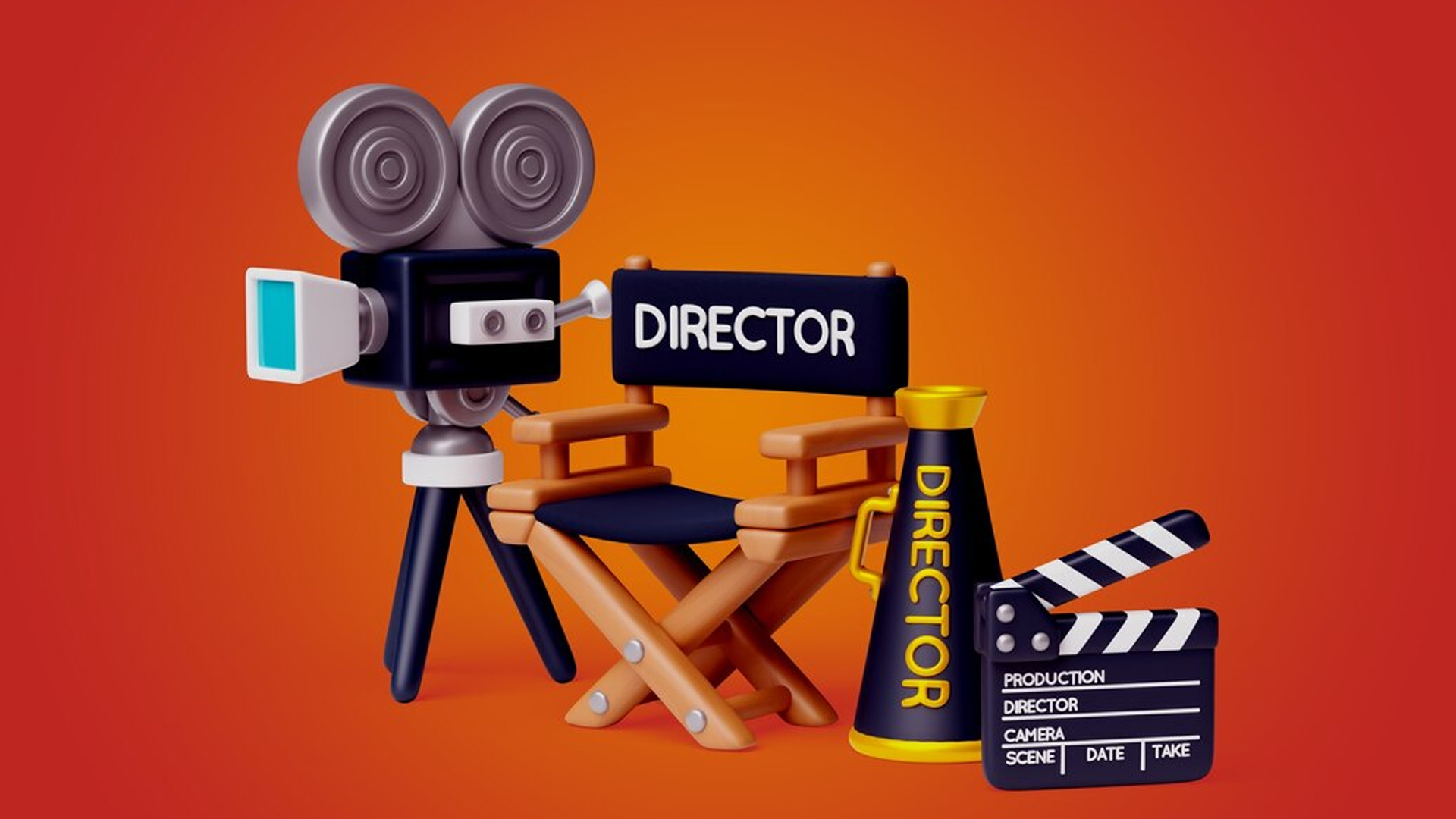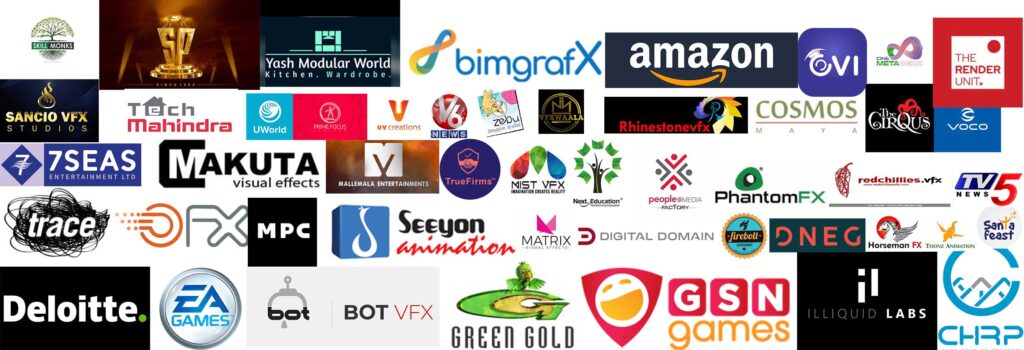
Institution for Bachelor in Fine Arts Course in Hyderabad
Digital filmmaking is a dynamic and rapidly growing field that offers exciting opportunities for creative individuals. AIIMS Multimedia Academy offers the most comprehensive Digital filmmaking Course in Hyderabad, designed to equip students with the skills and knowledge needed to succeed in this competitive industry. In this course, you will delve into the world of Film Making, learning how to create captivating visual effects using the latest technologies. From Digital filmmaking, you will explore a variety of Film Making forms and techniques, gaining hands-on experience through practical projects. Our course goes beyond just teaching the technical aspects of Digital filmmaking. We provide a comprehensive overview of the historical and technical evolution of Digital filmmaking, giving you a deep understanding of the field’s foundations and trends. As India emerges as a global hub for animation, this course opens up a world of opportunities. Companies like Disney are increasingly outsourcing their Digital filmmaking work to India, creating a high demand for skilled professionals in this field. A career in Digital filmmaking is not only creatively fulfilling but also highly remunerative, making it a lucrative choice for those with a passion for visual storytelling. Join our Digital filmmaking Course at AIIMS Multimedia Academy and embark on a rewarding journey into the world of Film Making. Discover your creative potential, hone your skills, and prepare yourself for a successful career in this exciting industry.

ADMISSION FORM
Essential Duties and Responsibilities of a Bachelor in Fine Arts Course
- Creative Work: Producing original works of art in their chosen medium, whether it's painting, sculpture, photography, etc.
- Portfolio Development: Building and maintaining a portfolio of their work to showcase their skills and artistic style.
- Research and Concept Development: Conducting research and developing concepts for artistic projects.
- Technical Skills: Developing proficiency in the technical skills relevant to their medium, such as painting techniques, digital design software, or dance choreography.
- Critique and Feedback: Participating in critiques and receiving feedback from peers and instructors to improve their work.
- Exhibition or Performance: Participating in exhibitions, performances, or showcases to present their work to the public.
- Collaboration: Collaborating with other artists, designers, performers, and professionals in related fields.
- Professional Development: Developing professional skills such as networking, self-promotion, and entrepreneurship.
- Art History and Theory: Studying art history and theory to understand the context and influences of their work.
- Community Engagement: Engaging with the community through art-related projects, events, or workshops.
- Continuing Education: Pursuing further education or training to enhance their skills and knowledge.
- Teaching and Education: Some BFA graduates may choose to pursue careers in teaching art or conducting workshops for others.
- Continuity: Ensuring continuity in terms of the story, performances, and visual elements throughout the film.
- Creative Decision-Making: Making creative decisions that serve the story and enhance the overall impact of the film.
- Distribution and Promotion: Working with distributors and marketing teams to promote the film and ensure that it reaches its intended audience.
Bachelor in Fine Arts (Eligibility: 10th or 12th and above)
- Semester 1:
- Semester 2:
- Semester 3:
- Semester 4:
- Semester 5:
- Semester 6:
Drawing and Sketching: Basic drawing techniques, sketching exercises, understanding of shapes, forms, and proportions.
Art History: Survey of art history, from ancient to contemporary art movements and styles.
Color Theory: Understanding the color wheel, color harmony, and the psychological effects of color.
2D Design: Basics of two-dimensional design, composition, and visual elements.
Communication Skills: Oral and written communication skills, presentation skills, and interpersonal communication.
Figure Drawing: Drawing the human figure, anatomy, and proportions.
Art and Society: Understanding the role of art in society, cultural influences on art, and art as a form of expression.
Painting Techniques: Introduction to painting techniques, including watercolor, acrylic, and oil painting.
Sculpture: Basics of sculpture, working with different materials, and sculptural techniques.
Environmental Studies: Understanding the environment, sustainable practices in art and design.
Graphic Design: Basics of graphic design, layout design, typography, and visual communication.
3D Design: Introduction to three-dimensional design, spatial relationships, and form.
Printmaking: Basics of printmaking techniques, including relief, intaglio, and lithography.
Art Criticism: Basics of art criticism, analyzing and interpreting works of art.
Professional Practice: Ethics, responsibilities, and professional standards in the practice of fine arts.
Advanced Drawing and Sketching: Advanced drawing techniques, experimental approaches to drawing.
Digital Art: Introduction to digital art, digital painting, and manipulation techniques.
Art and Technology: Exploring the intersection of art and technology, digital media in contemporary art.
Entrepreneurship Development: Basics of entrepreneurship, business planning, and management skills for artists.
Project Work: Practical application of fine arts concepts in a project-based learning environment.
Motion Graphics: Introduction to motion graphics, animation principles, and techniques.
Installation Art: Basics of installation art, site-specific art, and environmental art.
Art Therapy: Introduction to art therapy, understanding the therapeutic uses of art.
Internship/Industry Training: Hands-on experience in an art studio, gallery, or related industry, exposure to real-world projects and workflows.
Portfolio Development: Creating a professional portfolio showcasing student work, preparing for exhibitions and job interviews.
Seminar and Presentation: Presenting a seminar on a fine arts-related topic, enhancing presentation skills.
Research Methodology: Basics of research, research design, data collection, and analysis in the context of fine arts.
Dissertation: Conducting a research project or creating an advanced art project under the guidance of faculty.
Career Path
- Fine Artist
- Painter
- Sculptor
- Printmaker
- Illustrator
- Graphic Designer (Fine Arts)
- Photographer (Fine Arts)
- Digital Artist
- Muralist
- Art Teacher/Instructor
- Gallery Curator
- Art Conservator
- Art Therapist
- Set Designer (Theater/Film)
- Costume Designer
- Prop Designer
- Art Director
- Creative Director
- Exhibition Designer
- Public Art Coordinator
- Community Arts Coordinator
- Art Critic/Reviewer
- Art Historian
- Art Administrator
- Museum Educator
- Museum Technician
- Auction House Specialist
- Art Consultant
- Art Appraiser
- Freelance Artist
Our Recruiters




